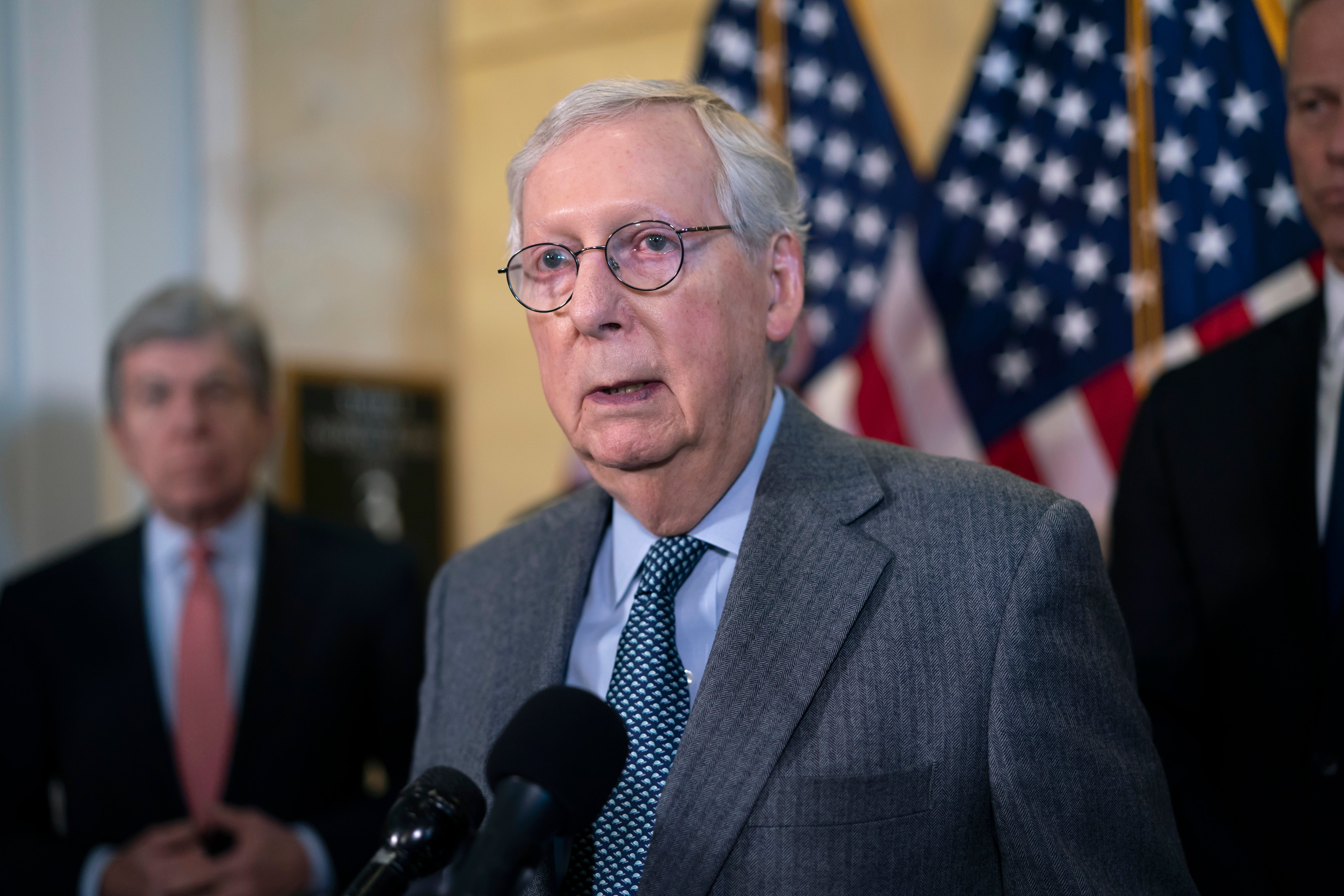Bill averting federal shutdown clears initial Senate hurdle
The Senate has voted 65-30 to start debating legislation averting a weekend government shutdown

Your support helps us to tell the story
From reproductive rights to climate change to Big Tech, The Independent is on the ground when the story is developing. Whether it's investigating the financials of Elon Musk's pro-Trump PAC or producing our latest documentary, 'The A Word', which shines a light on the American women fighting for reproductive rights, we know how important it is to parse out the facts from the messaging.
At such a critical moment in US history, we need reporters on the ground. Your donation allows us to keep sending journalists to speak to both sides of the story.
The Independent is trusted by Americans across the entire political spectrum. And unlike many other quality news outlets, we choose not to lock Americans out of our reporting and analysis with paywalls. We believe quality journalism should be available to everyone, paid for by those who can afford it.
Your support makes all the difference.Legislation averting a weekend government shutdown easily cleared an initial hurdle Thursday as the Senate advanced a measure designed to give bipartisan bargainers more time to reach an overdue deal financing federal agencies until fall.
With government spending authority expiring Saturday, the bill cleared a procedural hurdle by a bipartisan 65-30 vote, five more votes than the 60 needed. Leaders were working to line up votes demanded by some Republicans on vaccine mandates and other politically fraught issues before final passage of the spending bill, which could occur later in the day.
The House approved it last week with both parties' backing. The process has had minimal drama, with neither side believing it would benefit by forcing an election-year budget shutdown. The bill would finance agencies through March 11.
With senators also eager to leave town for a weeklong recess, Republicans had limited leverage to press their demands as the deadline approached for keeping open the government.
“I believe that our Republican colleagues do not want to cause a Republican shutdown,” Senate Majority Leader Chuck Schumer, D-N.Y., said earlier this week. Senate Minority Leader Mitch McConnell, R-Ky., has said “there's no danger” of a shutdown.
Both parties hope the short-term measure will be the last one needed as negotiators craft compromise bills financing agencies through Sept. 30. Since the government's budget year began last Oct. 1, federal agencies have functioned at spending levels approved in the waning weeks of Donald Trump's presidency.
The new spending bills will be bipartisan compromises but will let President Joe Biden and Democrats controlling Congress put more of a stamp on spending priorities. They also are expected to provide defense increases the GOP wants.
The latest measure is the third short-term bill lawmakers will have approved since this budget year began. In recent decades Congress has routinely finished its budget work months late, and averting shutdowns prompted by partisan point-scoring has become an accomplishment, not a given.
Sen. Mike Braun, R-Ind., wanted a vote on language requiring Congress' nonbinding budgets to be balanced within 10 years. Sen. Mike Lee, R-Utah, and others wanted a vote on ending federal COVID-19 vaccine mandates.
Sen. Marco Rubio, R-Fla., sought a vote on banning federal expenditures for crack pipes, part of a program to help drug abusers avoid injuring themselves further. The Biden administration has said there's been no plan to do that and it won't happen.